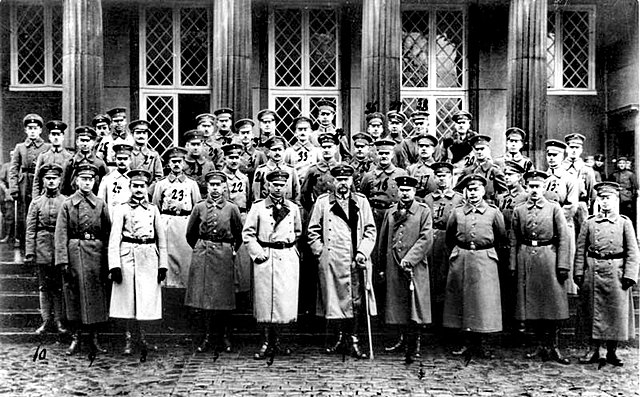Werner Eduard Fritz von Blomberg was a German General Staff officer and the first Minister of War in Adolf Hitler's government. After serving on the Western Front in World War I, Blomberg was appointed chief of the Truppenamt during the Weimar Republic. Following the Nazis' rise to power, he was named Minister of War and Commander-in-Chief of the German Armed Forces. In this capacity, Blomberg played a central role in Germany's military build-up during the years leading to World War II. However, by 20 January 1938, he was forced to resign after his rivals, Hermann Göring and Heinrich Himmler, presented Hitler with evidence that his wife had posed in the past for pornographic photos.
Werner von Blomberg
War minister and OKW commander Werner von Blomberg followed by the three armed forces chiefs inspects a parade in honor of the 40th anniversary of his joining the army.
Blomberg with Joseph Goebbels, 1937
Grave in Bad Wiessee
The German General Staff, originally the Prussian General Staff and officially the Great General Staff, was a full-time body at the head of the Prussian Army and later, the German Army, responsible for the continuous study of all aspects of war, and for drawing up and reviewing plans for mobilization or campaign. It existed unofficially from 1806, and was formally established by law in 1814, the first general staff in existence. It was distinguished by the formal selection of its officers by intelligence and proven merit rather than patronage or wealth, and by the exhaustive and rigorously structured training which its staff officers undertook.
Great General Staff building on the Königsplatz, Berlin in 1900
General Helmuth von Moltke the Elder, Chief of the General Staff from 1857 to 1888
William II with his generals
The German General Staff in Kassel, November 1918








